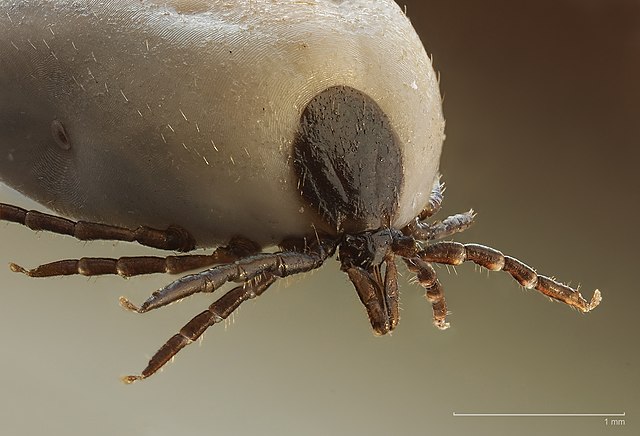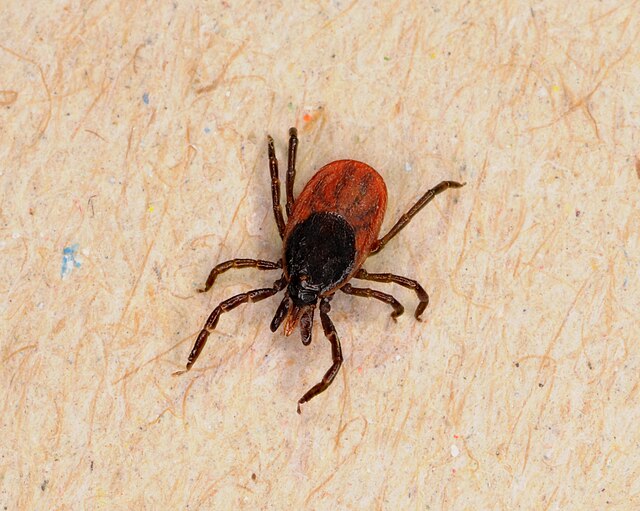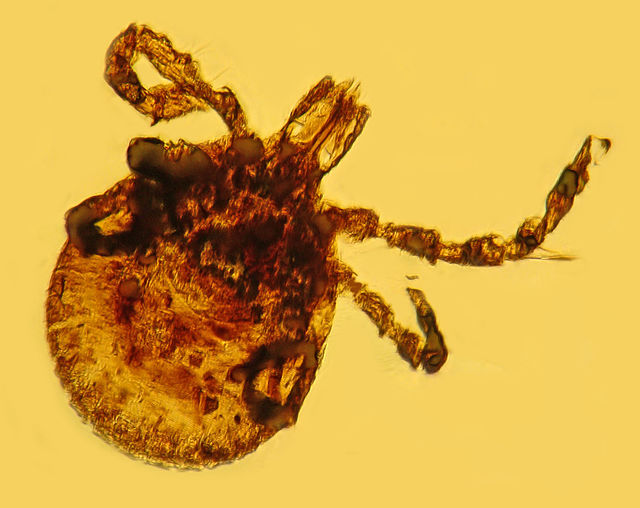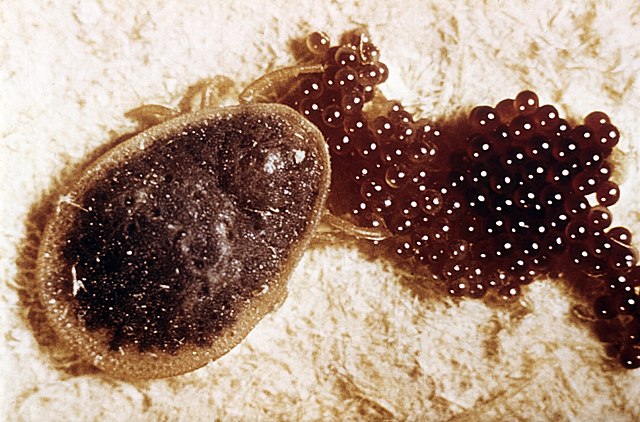Ixodes is a genus of hard-bodied ticks. It includes important disease vectors of animals and humans, and some species inject toxins that can cause paralysis. Some ticks in this genus may transmit the pathogenic bacterium Borrelia burgdorferi responsible for causing Lyme disease. Additional organisms that may be transmitted by Ixodes are parasites from the genus Babesia, which cause babesiosis, and bacteria from the related genus Anaplasma, which cause anaplasmosis.
Ixodes
Ixodes hexagonus
Ixodes ricinus
Ixodes scapularis
Ticks are parasitic arachnids of the order Ixodida. They are part of the mite superorder Parasitiformes. Adult ticks are approximately 3 to 5 mm in length depending on age, sex, species, and "fullness". Ticks are external parasites, living by feeding on the blood of mammals, birds, and sometimes reptiles and amphibians. The timing of the origin of ticks is uncertain, though the oldest known tick fossils are from the Cretaceous period, around 100 million years old. Ticks are widely distributed around the world, especially in warm, humid climates.
Tick
Fossilized tick in Dominican amber
A hard-bodied tick of the family Ixodidae, the lone star tick
A soft-bodied tick of the family Argasidae, beside eggs it has just laid







